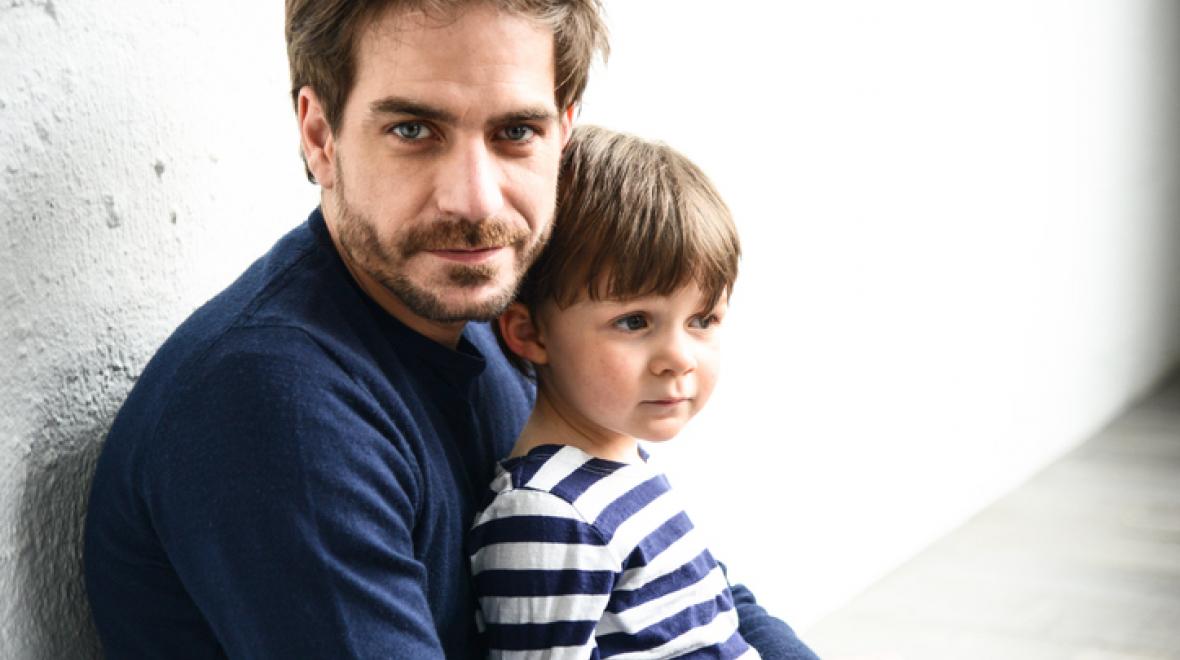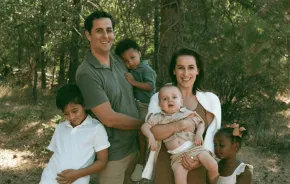
When stories of depression or suicide make headlines, many parents instinctively tune into their kids. How they can best protect and support them?
But what about the parents themselves?
The same week that Kate Spade and Anthony Bourdain died by suicide, the Centers for Disease Control and Prevention released sobering statistics about the increase in suicide rates nationwide from 1999 to 2016. According to the report, adults aged 45–64 had the largest increase in suicide and in the number of suicides.
To learn more about what parents need to know, I spoke with Overlake Medical Center psychiatrist Dr. Jacob Laskey, who does in-patient consultations with patients who are depressed or suicidal about. Here's his advice on what parents need to know.
If you or someone you love is considering suicide, call the National Suicide Prevention Lifeline (1-800-273-8255). The line is open 24/7, free and confidential.
Parents are often busy people, juggling families, work or other responsibilities while putting on a brave face for their kids. What obstacles do parents run into in getting mental health help?
Being a parent is a stressful endeavor.
The things that I see getting in the way of parents seeking help for themselves include availability, in general, there is a shortage of mental health services particularly in rural areas.
Also, parents have concerns about accessibility. There is both a direct and indirect cost to seeking mental health care that may include the cost of childcare; parents may worry about who will be responsible for their kids if they had to go to the hospital.
Lastly, there is the “acceptability” issue. Many parents are afraid to seek help as they fear the stigma associated with mental illness and/or fear unwanted attention from others including their children.
Do parents always recognize that they need help?
Whether a parent recognizes the need for help is a difficult question to answer and would likely vary on a case-by-case basis.
What we do know is that far too often parents do not seek help, whatever the reason may be.
One thing that stood out to me in the recent CDC report: 54 percent of those who committed suicide did not have a known mental health condition.
We often see people who have been admitted to the hospital following a suicide attempt who are in their 40s and 50s. Many of them have been struggling with significant depressive symptoms for a long time but have never sought treatment.
12 warning signs of suicide from the CDC
- Feeling like a burden
- Being isolated
- Increased anxiety
- Feeling trapped or in unbearable pain
- Increased substance use
- Looking for a way to access lethal means
- Increased anger or rage
- Extreme mood swings
- Expressing hopelessness
- Sleeping too little or too much
- Talking or posting about wanting to die
- Making plans for suicide
You mentioned that parents worry about how their kids may be impacted if they were to know a parent is struggling. Can you elaborate?
Children are observant. They often know when things are not normal, or when their parents are not doing well.
[That said,] there is no blanket “You should” or “You shouldn’t tell your children” [about seeking help for mental illness and/or suicidal thoughts]. It's a case-by-case situation that depends on factors like the child’s age, their development, how much you would be sharing.
One thing we can all do is have conversations in our families about mental health. It’s important to parse out who is doing well and who is not. I think the stigma of mental illness leads to a dearth of these conversations in families and in our communities.
But does talking about suicide ever “plant the idea” in a person’s head?
The best thing anyone can do for someone who is depressed is initiate a conversation; there's research and a belief among experts in the mental health field that supports that.
Open conversations about suicide are unlikely to increase suicidal ideation and may actually decrease it.
And you don’t have to use terms like “suicide” or “self-harm,” if they make you uncomfortable. Instead, point out warning signs that you may notice like withdrawal from favorite activities or more crying spells without jumping to the word “suicide.”
For as many demands and as tiring as it can be, are there mental health benefits to being a parent?
Absolutely.
Statistics show that people in families generally have a better prognosis when it comes to depression than single people. Also, it is a positive prognostic indicator if a person is thinking of how the health of their child may be negatively impacted by their own suicide as opposed to someone who may just be focused on their own death.
But, again, the key here is helping individuals who may need support, who may be struggling with depression — whether it’s a spouse or friend.
The more people, including parents, who may be at risk for suicide who can be first identified, and then supported professionally, the better our chances for reversing the tragic increase in suicide rates among adults that we are seeing in this country.











